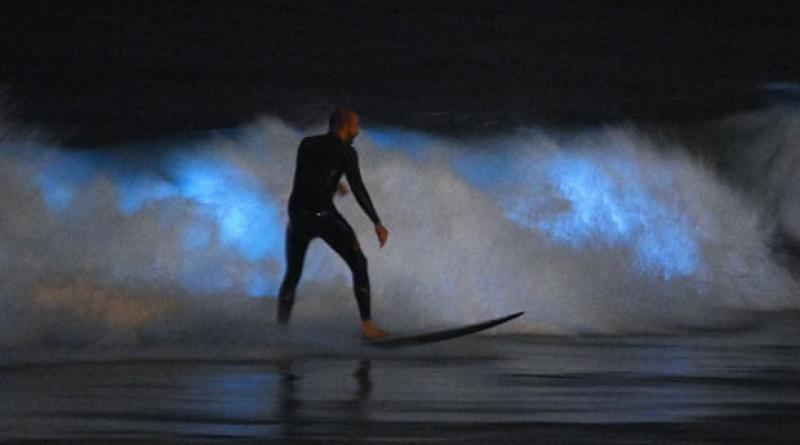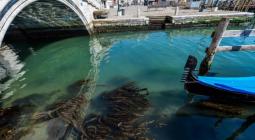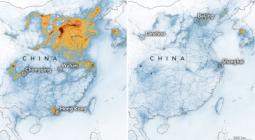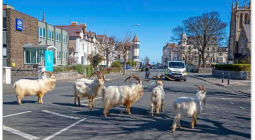Bioluminescent waves dazzle surfers in California: 'Never seen anything like it".

Crowds are coming to see the light show as beaches begin to reopen after an almost month-long closure due to coronavirus
Mother nature has provided a radical gift to nighttime beach-goers in southern California, in the form of bioluminescent waves that crash and froth with an otherworldly light.
The event occurs every few years along the coast of southern California, though locals say this year’s sea sparkle is especially vibrant, possibly related to historic rains that soaked the region and generated algal bloom.
For some, this year’s light show was especially meaningful, coming just as beaches began to reopen after an almost month-long closure due to coronavirus.
Dale Huntington, a 37-year-old pastor at a church in south-eastern San Diego, got up at 3am after beaches reopened to surf the iridescent waves.
“I’ve been surfing for 20 years now, and I’ve never seen anything like it”, Huntington said.

The neon waves owe their color to blooming microscopic plants called phytoplankton. By day, the organisms collect on the water’s surface to give the water a reddish-brown hue, known as the red tide. By night, the algae put on a light show, dazzling most brightly in turbulent waters.
One photographer off the coast of Newport Beach, where crowds in recent weeks have protested against closures, recorded a dolphin jetting through bioluminescence like a sea spectre.
The phosphorescent display has captured the attention of locals in southern California, with many emerging from shelter-in-place restrictions to catch a glimpse of the surreal scenery.
One San Diegan, who lives in a neighborhood along the coast, implored local officials to restrict access to the beach, complaining that the red tide has drawn large crowds comparable to a “Fourth of July on steroids”.
For surfers like Huntington, the spectacle has provided joy and relief amid the challenges of the pandemic. “My favorite part was paddling out – it was almost like there was a glow stick around your hand,” he described. “My board left a bioluminescent wake. There were a few of us out there and we were giggling, grown men shouting ‘this is so cool’ and splashing around like kids in the bathtub.”
Swimming, surfing, kayaking and paddleboarding are allowed under San Diego’s recently amended shelter-in-place restrictions.

Red tides, which stretch from Baja California up the coast to Los Angeles, have been observed since the early 1900s and can last from a few days to a couple of months. Scientists at the Scripps Institution of Oceanography at UC San Diego, who study the phenomenon, say the glow shows are most lively at least two hours after sunset.
Scientists don’t know exactly how long this year’s red tide will last, but for Huntington, this year’s light show was doubly welcome.
“I think we’re all looking for light in a dark time” he said. “And this sweet moment was an opportunity to find joy amidst struggle.”
5 May 2020
The Guardian




